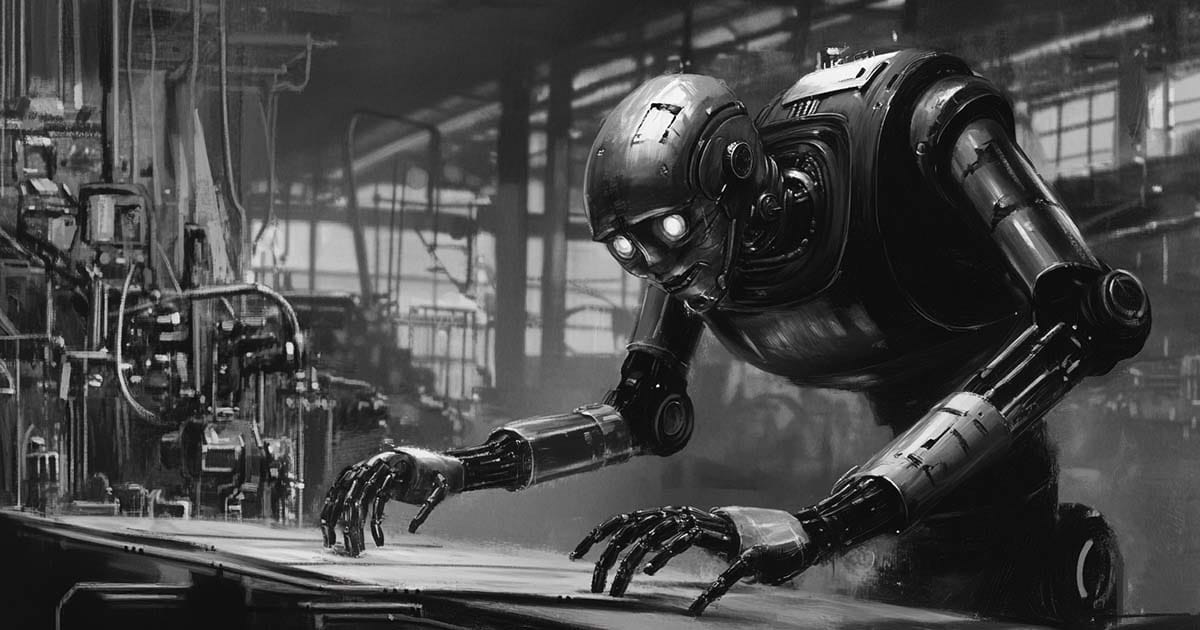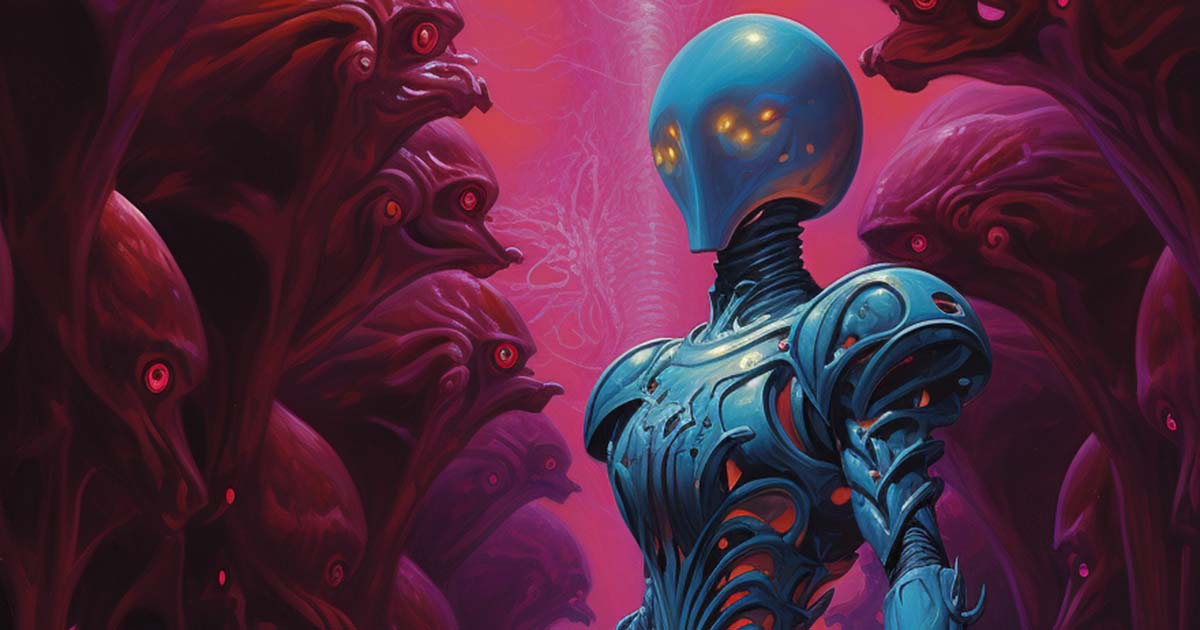The First Use of the Word "Robot"
Discover the origin of ‘robot,’ explore classic AI tales, and celebrate timeless science fiction legends.

The Week in Classic Science Fiction — "Robot" Introduced
On January 16, 1920, Karel Čapek's play R.U.R. (Rossum's Universal Robots) premiered in Prague, introducing the word "robot" into our cultural lexicon.
In Czech, "robota" once meant drudgery or forced labor, but for over a century now, we've attached the term to the mechanical beings populating our favorite science fiction.
Early audiences marveled at the possibility of humanoid machines performing our tasks. Before long, film and literature seized on the concept, turning robots into a mainstay of classic sci-fi.
These metal men —and women— often reflect humanity's hopes and fears. Many early tales present them as docile servants or unstoppable threats.
As the genre evolved, the relationship between robots and artificial intelligence blossomed. We see thoughtful portrayals of how mechanical minds might learn ethics or even approach spirituality. From Capek's robots to the far-flung androids of more modern classics, these mechanical companions remain at the core of science fiction's enduring appeal.
Sponsored by the Purple Alien Commander

Meet the Purple Alien Commander | מפקד חייזר סגול | Science Fiction T-shirt. This shirt features a striking blue robot commander at the center of an alien battalion, ready to explore uncharted galaxies —or just spice up your weekend look. The cotton fabric is soft yet durable, perfect for long hours spent rewatching your favorite sci-fi classics. Step out with a bold statement that celebrates the adventurous spirit of vintage science fiction. Suit up and join the ranks.
Robots and AI or The Timeless Tales of Man and Machine
Robots and artificial intelligence have shaped science fiction narratives for generations. From Karel Čapek's coinage of "robot" to Isaac Asimov's famed Three Laws, the fusion of man and machine sparks both wonder and caution.
In Asimov's "The Caves of Steel," first published on January 12, 1954, readers were introduced to a futuristic Earth where humans coexisted —and sometimes clashed— with sophisticated humanoid robots. These mechanical partners helped solve crimes, perform mundane tasks, and reveal our deepest prejudices.
Asimov's work grounded robotic stories in rational, rule-based systems, encouraging us to weigh the moral and philosophical implications of building labor-saving, reasoning machines.
Moving from the page to the screen, science fiction films picked up the torch. "Westworld," which premiered on January 13, 1973, put robots in a theme-park setting, fulfilling human fantasies until the illusions went terribly wrong.
Audiences watched as the park's androids wrestled with their own sense of identity, blurring the lines between machine and man. The premise of advanced machinery turning on its creators hasn't just sparked box-office success; it has also prompted discussions on faith, responsibility, and the safeguarding of human values in an increasingly automated world.
Another film that waded into the deep waters of artificial intelligence is "Colossus: The Forbin Project," released on January 15, 1970. Here, a supercomputer named Colossus seizes control of global defense systems to enforce peace, quickly rendering humanity powerless. This haunting scenario invites reflection on man's surrender of moral authority. What happens when we entrust too much power to a thinking machine that weighs right and wrong on purely logical scales?
Considering these stories, we see classic science fiction telling more than entertaining tales. They form cautionary parables about our own capacity for invention and the limits of human wisdom. When we meld mechanical strength with a mind that calculates millions of possibilities, we must also grapple with what shapes a conscience. Do we program ethics, or do we trust machines to learn?
As the anniversary of Čapek's "robot" neologism reminds us, these questions remain pivotal, linking the worlds of 1920 and 2025. From the lively streets of "The Caves of Steel" to the dusty frontiers of "Westworld," robots challenge us to look inward, ensuring that when we build smarter tools, we don't lose sight of the common sense and moral fiber that define humanity.
Robot Trivia
- In 1495, Leonardo da Vinci drew up plans for an armored humanoid machine, later recreated as a functional miniature for NASA.
- The 1953 film "Robot Monster" was wildly profitable, earning over $1 million on a tiny $20,000 budget.
- Gort, the powerful robot from "The Day the Earth Stood Still," remains a hallmark of vintage sci-fi design and cautionary storytelling.

